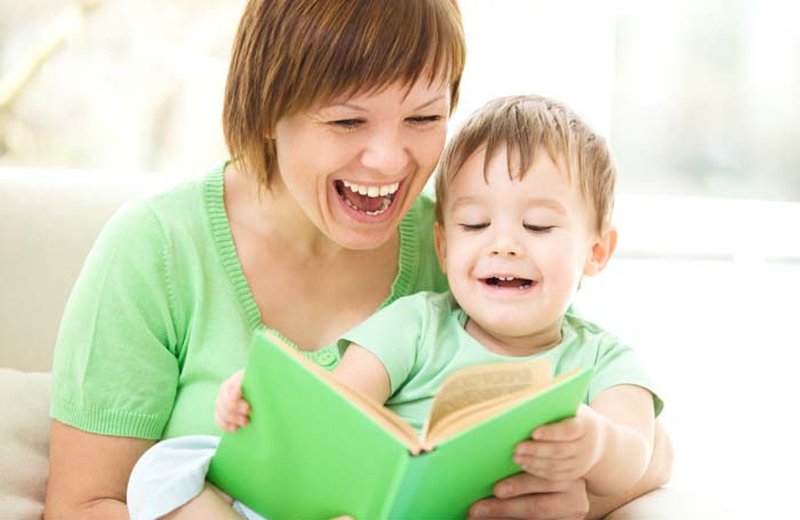A developmental milestone of a child is an ability that most children achieve by a certain age. Developmental milestones may be social, physical, emotional, communication and cognitive skills such as expressing emotions, sharing with others, walking, talking and recognizing familiar sounds. Language development is one key issue that parents focus on. Learn if 16 month old not talking is normal or not and best ways to encourage language development in your toddler.

Normal Developmental Milestones of a 16 Months Old Child
Now your kid will sleep less during the day; he/she will sleep one time around mid day. Keep the time of her mid day napping consistent so that she settles in the routine.
Although at 16 months your kid will not sit still for more than a couple of minutes at a time; she will be interested in sitting with you during your reading time. However, instead of listening to you, your baby may prefer to point out things that she notices in the book and for which she knows the words such as ball, cow or car. You can encourage her to repeat these words and as you read together, it will help to improve her language skills.
Your kid is now starting to interact socially- wave, play easy games including peek-a-boo and also able to follow instructions. She will show affection with kisses and hugs and will respond excitedly to the kisses and hugs she receives from you.
Your baby at 16 months
She must be able to:
Walk and run
Sing with you
Enjoy scribbling
Turn the pages of a story book while you are reading to her
Get upset when she is frustrated
Get attached to an object such as a soft toy
Probably, she will be able to
Say up to 15-16 words (thereby raising the question whether 16 month old not talking normal)
Help you in doing simple things in the house
Climb
Dance to song and music
Prefer certain foods
Remove a clothing item without any help
Stack three bricks
Learn the right way to use common things such as a telephone
Language Development in a 16 Month Old
However, still she will mostly rely on nonverbal communication, gesturing and pointing to make you aware of her desires and wants.
At this age your kid is able to understand much more than she is able to speak. (The real challenge for kids this age is how to coordinate their tongue and lips and breath well enough so that they are understandable). This can be an accidental discovery when one day you are asking about the location of your car keys and your kid points to the place where they are lying. Or you may tell your kid to get her shoes and are amazed to see it done! They can understand more than saying it.
Is 16 Month Old Not Talking Normal?
If your kid is not saying clear words, it’s OK, especially if it’s a boy. If he’s babbling, pointing and making noises and gestures to get your attention and get what he desires then there is no reason to get worried.
In cases if your kid is not making any types of noises or not babbling at all, then she should be immediately taken for an evaluation for speech or get a hearing test done.
Moreover, if you notice presence of any other symptoms including abnormal temper tantrums, acting like she is unable to hear you, sleep issues, aggressive behaviors such as scratching or excessive biting, obsessive compulsive behaviors or major problems with eating then you should get your kid screened for autism.
What to Do to Encourage Language Development in Your 16 Month Old
If your 16 month old is not talking then following are the communication and language activities that you can follow to encourage language development in your kid:
Talk with your child. Comment on or talk through routine. Comment on her actions and events or objects.
Engage in activities or objects that interest your child.
Read interactively. Point to and label different objects in the story book. While you are reading new words, ask your child to repeat it.
Use props. Use objects including dolls, old phones, cell phones, puppets, play dough,etc. that spark conversations.
Involve your kid in musical activities. Make gestures when singing simple songs such as “Twinkle twinkle little star”. Narrate stories by using songs. Create small songs and sing them during routines. For instance, “Brush your teeth everyday, your teeth will be white and shiny yay! yay! yay!”.
Pretend with your child. When you are playing together, help your kid create worlds by using words.
Talk to your kid about photos of the events happened in the family. This is an excellent source for generating stories and it will stimulate both their language skills and memory.
Give your kid words for different feelings. For example, if she is feeling frustrated, give them words such as “frustrated”, “mad” and “angry”.

View All Comments /Add Comment